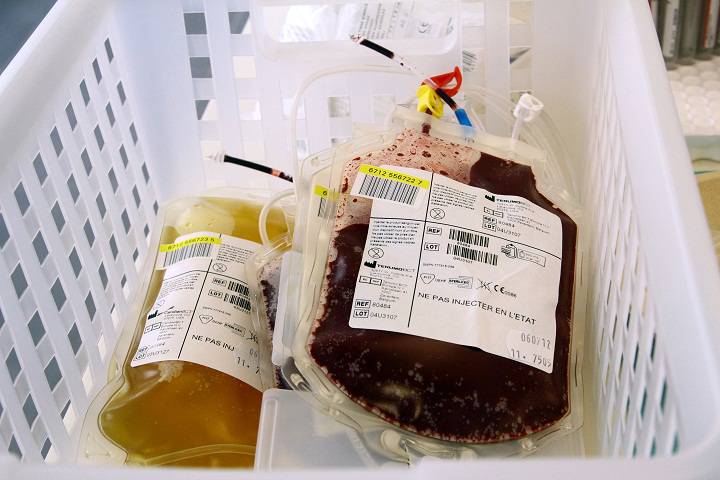If the objective of a government ban is to protect against an unacceptably high risk of harm or danger, then it should be relatively straightforward to demonstrate what that risk is. Conversely, if the supposed harm cannot be demonstrated, or is contradicted by the evidence, then the ban should not stand.

It would be even more egregious if the ban preceded a gathering and examination of the evidence. Surely the latter should come before the former.
It’s becoming ever more apparent that such shortcomings aptly describe the bans on paid plasma donations that exist in a growing number of Canadian provinces. It’s bad enough that the stated justification for these bans would be at odds with the evidence, but it’s even worse if such bans are an obstacle to Canada becoming self-sufficient in plasma products.
And now in the face of a thorough new report from a Health Canada expert panel, it seems rather appropriate to put these bans under the spotlight.

WATCH VIDEO: Opposition mounts to “pay for plasma” in B.C.
Plasma collected from volunteer Canadian donors — which is then used to make immune globin (IG) and other plasma-based pharmaceutical products — represents a mere 17 per cent of the current need in this country, a need that is growing by about 10 per cent annually. The rest we import from the United States, where it is collected from paid donors.
The United States is self-sufficient when it comes to plasma, and it still exports to countries around the world. In fact, only a handful of countries are self-sufficient, and all of them permit donor compensation.
Whatever moral or ethical objections one might wish to raise about compensating someone for donating human plasma must then also take into account the fact that the vast majority of plasma we use already comes from paid donors. If we cut off that supply, that will have a severely negative impact on the health of many Canadians. And if the U.S. were to take the advice of Canadian proponents of a ban, it would be a global disaster.
Last July, Health Canada established an expert panel to examine the long-term security and sustainability of Canada’s IG supply, and whether expanded plasma collection might impact the Canadian blood supply.
These seem like precisely the sorts of steps that ought to have been taken before implementing bans on donor compensation. Unfortunately, that did not happen.
After months of extensive research and consultation, the expert panel has produced its report. Its findings are rather significant.
The panel found no evidence to suggest that commercial plasma collection negatively affects the supply of whole blood. Furthermore, it found that plasma products, including IGs, are very safe with no documented cases of disease transmission in over 20 years.
So if there is no threat to our blood supply and no threat to the safety of products derived from plasma, what is the basis for these bans?
As the panel notes, reducing our dependence on American plasma products likely necessitates remuneration of plasma donors. At least then we’d have a direct say in how such compensation would be administered and regulated, as opposed to the status quo.
Similar findings emerged five years ago in a Health Canada public consultation and expert roundtable. The report it produced found that “payment by a private company for plasma donations has never and will never have any impact on Canada’s voluntary system for collecting blood for transfusion.”
Despite that report, Ontario banned donor compensation in 2014. Alberta followed suit last year and BC has just this year implemented a ban (Quebec’s ban has been in place for over 20 years). Will any of these provinces re-examine their legislation in the face of this new report? They ought to, but I’m not optimistic that they will.
This needn’t preclude us from expanding the capacity to better serve volunteer donors and to find ways of making that process easier and more convenient. But that’s never going to get us anywhere close to self-sufficiency.
These bans are therefore both unjustified and counter-productive. The sooner we realize this, the better.
Rob Breakenridge is host of “Afternoons with Rob Breakenridge” on Global News Radio 770 Calgary and a commentator for Global News.








Comments